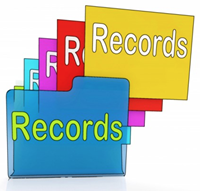 While scrolling through a recent update of new laws that have been signed into effect here in California recently, I encountered one that particularly interested me. A new piece of legislation signed into law by Governor Jerry Brown was labeled AB1222, an act to amend Section 22513 (adding Section 22513.1) to the Vehicle Code relating to vehicles. Whether in your personal vehicle or your truck, if you have ever had to be in a situation where you needed a tow, you know the gut-wrenching feeling of
While scrolling through a recent update of new laws that have been signed into effect here in California recently, I encountered one that particularly interested me. A new piece of legislation signed into law by Governor Jerry Brown was labeled AB1222, an act to amend Section 22513 (adding Section 22513.1) to the Vehicle Code relating to vehicles. Whether in your personal vehicle or your truck, if you have ever had to be in a situation where you needed a tow, you know the gut-wrenching feeling of  wondering what it is going to cost! Typically, if you ask the tow truck driver, they will not give an estimate because they do not want to be wrong, should the event arise that there is delays or complications in transit. Unfortunately, sometimes the reason for their inability to answer is not such an honest case and they may have an ulterior motive of gouging you on price at the final destination of your tow. Although I have never run into this situation in the four instances I have had to call out a tow in my personal cars and rigs, there still are those in this world there that would have no problem taking advantage of people in their "hour of need". AB1222 is a step in the right direction to eliminating some of the practices witnessed in corrupt tow companies that are out there. Two major aspects set to take effect on January 1, 2016, that I see will have a major effect on the towing procedures are the “estimate requirement”, the “anti-solicitation” measures.
wondering what it is going to cost! Typically, if you ask the tow truck driver, they will not give an estimate because they do not want to be wrong, should the event arise that there is delays or complications in transit. Unfortunately, sometimes the reason for their inability to answer is not such an honest case and they may have an ulterior motive of gouging you on price at the final destination of your tow. Although I have never run into this situation in the four instances I have had to call out a tow in my personal cars and rigs, there still are those in this world there that would have no problem taking advantage of people in their "hour of need". AB1222 is a step in the right direction to eliminating some of the practices witnessed in corrupt tow companies that are out there. Two major aspects set to take effect on January 1, 2016, that I see will have a major effect on the towing procedures are the “estimate requirement”, the “anti-solicitation” measures.
 “The bill would, subject to exceptions, and if the vehicle owner or operator is present, also require the towing company or the owner or operator of the tow truck to furnish the vehicle’s owner or operator with a written itemized estimate of all charges and services to be performed. Prior to removing the vehicle, the towing company or the owner or operator of the tow truck would be required to obtain the vehicle owner or operator’s signature on the itemized estimate, and to furnish a copy to the person who signed the estimate, as specified.” (AB1222, Bloom. Tow trucks). No longer would a dishonest tow company be able to hold your vehicle hostage at the end of a tow, since the estimated charges will now have to be discussed up front.
“The bill would, subject to exceptions, and if the vehicle owner or operator is present, also require the towing company or the owner or operator of the tow truck to furnish the vehicle’s owner or operator with a written itemized estimate of all charges and services to be performed. Prior to removing the vehicle, the towing company or the owner or operator of the tow truck would be required to obtain the vehicle owner or operator’s signature on the itemized estimate, and to furnish a copy to the person who signed the estimate, as specified.” (AB1222, Bloom. Tow trucks). No longer would a dishonest tow company be able to hold your vehicle hostage at the end of a tow, since the estimated charges will now have to be discussed up front.
“Existing law makes it a misdemeanor for the owner or operator of a tow truck to stop at the scene of an accident or near a disabled vehicle for the purpose of soliciting an engagement for towing services, either directly or indirectly, or to furnish any towing services, unless summoned to the scene, requested to stop,  or flagged down by the owner or operator of a disabled vehicle, or requested to perform the service by a law enforcement officer or public agency pursuant to that agency’s procedures.” (AB1222, Bloom. Tow trucks). The new amendment would apply these provisions of service to a towing company as well. It also makes it mandatory for a “towing company or the owner or operator of a tow truck to maintain specified documents for 3 years and to make those documents available for inspection and copying within 48 hours of a written request by specified law enforcement and prosecutorial entities” (AB1222, Bloom. Tow trucks), in regards to the documents proving the method in which they were summoned to the scene.
or flagged down by the owner or operator of a disabled vehicle, or requested to perform the service by a law enforcement officer or public agency pursuant to that agency’s procedures.” (AB1222, Bloom. Tow trucks). The new amendment would apply these provisions of service to a towing company as well. It also makes it mandatory for a “towing company or the owner or operator of a tow truck to maintain specified documents for 3 years and to make those documents available for inspection and copying within 48 hours of a written request by specified law enforcement and prosecutorial entities” (AB1222, Bloom. Tow trucks), in regards to the documents proving the method in which they were summoned to the scene.
 The bill makes willful violation of these new amendments “a misdemeanor punishable by a fine not exceeding $2,500, or imprisonment in a county jail not exceeding 3 months, or both imprisonment and that fine.” (AB1222, Bloom. Tow trucks). It also will set a reasonable cap on towing and storage fees. A lot of people may see this as just another plot for a state to collect revenue from another facet of the trucking industry, since tow trucks can be lumped into “trucking” as a general classification. I happen to see this as a means to end in the fight
The bill makes willful violation of these new amendments “a misdemeanor punishable by a fine not exceeding $2,500, or imprisonment in a county jail not exceeding 3 months, or both imprisonment and that fine.” (AB1222, Bloom. Tow trucks). It also will set a reasonable cap on towing and storage fees. A lot of people may see this as just another plot for a state to collect revenue from another facet of the trucking industry, since tow trucks can be lumped into “trucking” as a general classification. I happen to see this as a means to end in the fight  to inform the consumer prior to having services rendered. I have heard the horror stories from friends of mine about $700-$1000 tow bills that they thought would be $500 or less. I am all about a company trying to make a profit, since that is a true measure of a successful business, but committing “highway robbery” to do so is not just by any means. I can definitely see other states jumping on board to enact thier own similar laws, if none are in place already, to help look out for consumer rights against those that might
to inform the consumer prior to having services rendered. I have heard the horror stories from friends of mine about $700-$1000 tow bills that they thought would be $500 or less. I am all about a company trying to make a profit, since that is a true measure of a successful business, but committing “highway robbery” to do so is not just by any means. I can definitely see other states jumping on board to enact thier own similar laws, if none are in place already, to help look out for consumer rights against those that might  be out there to take advantage of a driver in a tough spot. As for me, the next time I need a tow (hopefully later rather than sooner), I will feel a little more at ease knowing I will have to be given an estimate before they hook onto my vehicle!
be out there to take advantage of a driver in a tough spot. As for me, the next time I need a tow (hopefully later rather than sooner), I will feel a little more at ease knowing I will have to be given an estimate before they hook onto my vehicle!